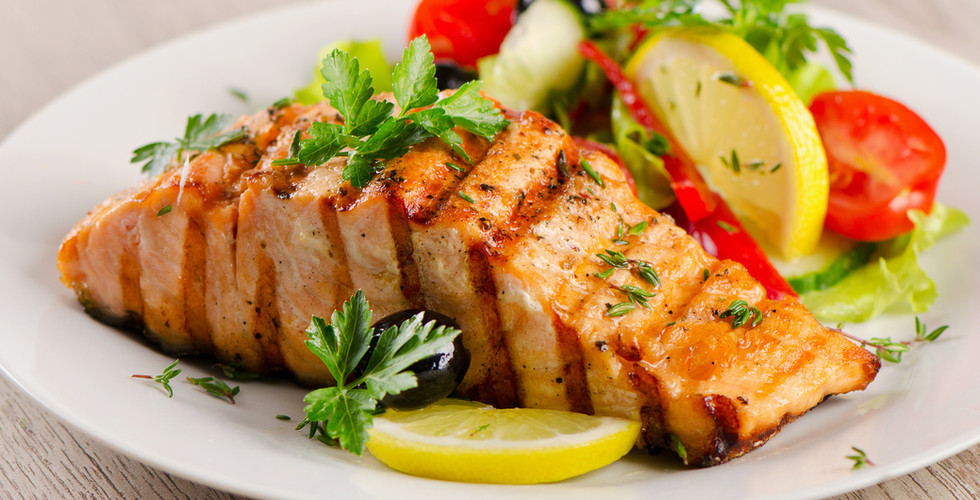Protein: the key to a satisfied, focused & productive workforce
- linda9277
- Jul 7, 2020
- 4 min read
Updated: Jul 9, 2020
The first nutrient on my POWER plate is P for Protein, which is very apt as the word protein comes from the Greek proteios, meaning “first place” or “primary”.
Let's take a closer look and understand why it should be part of every single meal, including breakfast, for lasting energy, performance and productivity.
Why is protein so important?
Protein makes up part of all the cells and tissues in your body, including hair, skin and nails and is required for growth and repair, as well as energy. The body also needs protein to make enzymes that turn food into energy, hormones such as adrenaline and insulin, and neurotransmitters such as dopamine connected with good mood, motivation and concentration. It also makes antibodies for your immune system.
You may remember from biology at school that protein is made up of building blocks called amino acids; there are 20 of these of which eight are essential as the body cannot make them itself, so they must come from the diet. When carbohydrate and fat is not available, the body can convert amino acids into glucose which is then used for energy.
And another wonderful thing about protein is that it fills you up, so you're not constantly craving your next snack. This is because protein keeps your blood sugar balanced as it slows down the release of sugar into your bloodstream, so you stay fuller for longer, have more sustained energy and eat less - an extra bonus for your waistline!
In short, we cannot survive without protein.

How much protein do we need?
As you can see from my POWER Plate, protein-rich foods should form around one quarter of your meal - as a rough guide this is equivalent to the size of the palm of your hand. The average person needs approx. 0.8g-1g of protein per 1 kg of body weight, so if you weigh 64kg (around 10 stone) you would need around 60 grams of protein spread over the day ie no more than 20g of protein per meal. If you are more active, then according to the International Society of Sports Nutrition you may need anything from 1.4 to 2kg per kg of body weight to repair damaged muscle fibres, depending on the level of activity.
How much protein is in my food?

As you can see from the infographic, it’s easier to get your full quotient of protein if you're a meat-eater because animal sources are complete proteins, containing all of the essential amino acids that you need for growth, development and repair of cells and tissues in the body.
So if you weigh 64kg you’ve already fulfilled your daily protein requirements by eating a chicken breast and a small can of tuna. However, you may have had very little, if any, protein for breakfast so make sure you spread your protein intake evenly across the day. Even a handful of walnuts and 1 tbsp sunflower seeds with your cereal will give you 10 grams of protein and leave you feeling much more satisfied and energised.
If you are vegetarian, you may have to try a bit harder but a couple of eggs or an 80g serving of halloumi would give you 16g, and a full fat yoghurt e.g. Skyr gives you around 15g for a 150g pot.
If you're vegan, it's not always easy to get all your essential amino acids from one source so you have to combine foods in order to obtain a complete protein e.g. lentils and rice, beans on toast. Soya is a complete protein so try to include a portion of tofu e.g. in a stir-fry at least once a week.
Quinoa, known as a pseudo grain because it’s actually a seed, provides all the amino acids so unlike most grains can provide you with around 10g of protein for a 170g portion.
A word of caution: B12 deficiency is a risk when you’re vegan so supplementation is recommended.
Meal solutions
Once you get the hang of this it's really easy, and here are a few meal ideas to help you "think protein with every meal" even if it's just a snack.
Salmon with salad
Chicken in a wrap with salad veg
Omelette with mushrooms and salad
Salad niçoise (tuna and eggs)
Feta cheese with a few olives makes a filling, nutritious snack
Beans on toast with green leafy salad
A tin of sardines or mackerel with celery sticks and a couple of oatcakes
For the vegetarian palate, you can have tofu stir-fry, hummus wrap with some pumpkin seeds or pine nuts, chilli bean wrap with avocado salsa & quinoa
So it really doesn’t have to be difficult. It just requires some planning, like using leftovers from your chicken dinner, and adding it to a salad for lunch the following day.

Can you have too much protein?
If you have too much protein, it can cause a strain on the kidneys so don't go thinking that you have to have a large steak for lunch and a full English breakfast every day. Moderate amounts with each meal to meet your body's needs will be enough to keep you energised, satisfied and strong.
If you'd like me to help you and your colleagues make healthier food choices to enhance energy and performance at work, please click below to discover more about my talks and workshops.
















Comments